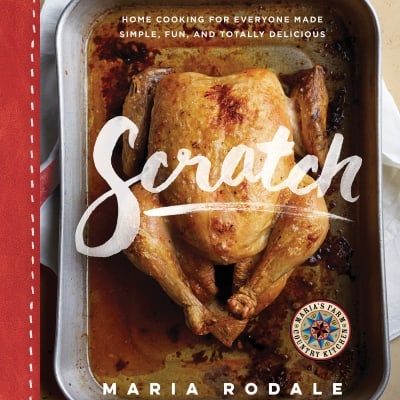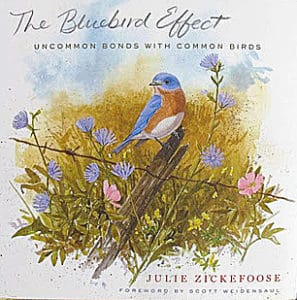I love food so much. I love the social aspect of gathering around a meal or heading out to try new restaurants. Preparing meals for others is one way that I express affection. Food is fuel, but it is so much more to me. As such, I was pretty glum when I learned that I would need to restrict my diet for health reasons. All my favorites are quite literally off the table- no tomatoes, no chocolate, no caffeine, no tea, no coffee, no alcohol, nothing spicy, and nothing acidic. Upon hearing this, I briefly, but seriously, considered dealing with supremely unpleasant symptoms just to continue eating tomatoes and all those acidic fruits I love so much.
Once I came to my senses, I started examining what this diet really looked like. Sure, I couldn’t have preservatives or most ingredients I couldn’t pronounce, but should I really be eating those things anyway? Probably not. I could still have garlic, herbs, cheese, most veggies, and almost any starch or grain, so I thought, “OK, you can work with this.”
What it came down to is that I needed to begin making everything from scratch. I was already a bread baker, so I’m not afraid of homemade baked goods, but my family will tell you, I would rather bake than cook. Not being able to rely on packaged foods, like boxed pasta or packaged tortillas was severely hindering my ability to put together a flavorful and satisfying meal. The first week was rough and there were more misses than hits (it turns out, there is a certain trick to making tortillas that my Canadian ancestors somehow did not pass down through the generations). Each morning, I would come into work whining about the disaster that was the previous night’s dinner.
Feeling defeated and more than a little hungry, I couldn’t even bring myself to adapt recipes that I used to love. Luckily, my coworkers stepped in to help find things I could eat and cookbooks that were filled with recipes largely free of problem ingredients. There are three books in particular that helped me rediscover my love of cooking and eating.
By far, the most helpful was “Scratch” by Maria Rodale. This book is filled with simple recipes, using ingredients without the mystery additives that I can’t eat. The name says it all; everything is made from scratch. I brought the book home and just decided to make whatever was on the page I opened up to, which is how we ended up eating a brunch classic, quiche, for dinner. It was heavenly. With very few adaptations and using only ingredients that were already in my pantry, I pulled together the first good meal I had eaten in many days.
My adventures with my new bestie, Maria (ok, she doesn’t know we’re besties…yet), didn’t stop there and I am still making delicious meals using her straightforward recipes. I even bought the book for my own collection, which as a committed borrower of books, is a true rarity.
The next book that helped guide me through the dietary minefield that is now my life was “Mastering Pasta: The Art and Practice of Handmade Pasta, Gnocchi, and Risotto” by Marc Vetri. Because most pastas are fortified (yet another thing I’m not supposed to consume in large quantities), I had begun making my own pasta. Jamie Oliver’s YouTube channel got me started and after an ill-fated experiment with the Kitchenaid mixer pasta attachment that left my mixer smoking and my kitchen spattered with dough the consistency of hardened cement, I bought a hand crank pasta maker. Since then, I have been pasta obsessed. “Mastering Pasta” if full of pasta and sauce recipes that don’t necessarily involve tomatoes- a huge plus for acid-free me!
The last book that I can credit with helping me to cope with the loss of some of my favorite foods and activities was “In Memory of Bread,” by Paul Graham. This memoir details how the author learned to deal with a severe wheat allergy that he developed later in life. Mercifully, I can eat wheat, but his story felt painfully familiar. One line perfectly summarized how I was feeling: “It was as if a sinkhole had opened beneath an important part of my life and irretrievably consumed it. I had been an avid home cook and amateur beer brewer; these were leisure activities that helped me define my place in the world, the things that I enjoyed the most with my wife and close friends.”
While it may sound dramatic, because it is just food after all, I felt like this book validated my feelings of grief and the loss of a part of my identity. It was heartening to read how the author was able to find new ways to fill his plate and his life, but still acknowledge the feelings of unfairness and sadness the loss of favorite pastimes and foods can cause.
While I will always miss tomatoes and hope that I will eventually be able to incorporate foods back into my diet, I am beginning to enjoy finding and adapting recipes. I may not be able to have my beloved marinara sauce, but I’ve found that things like brown butter sauce over heart shaped homemade sweet potato ravioli (the heart shapes definitely make it taste better) have begun to fill the void in my stomach and in my heart.
Allison Palmgren is the Technology Librarian at the Morrill Memorial Library. Read Alli’s article in the November 24th issue of the Norwood Transcript and Bulletin.




